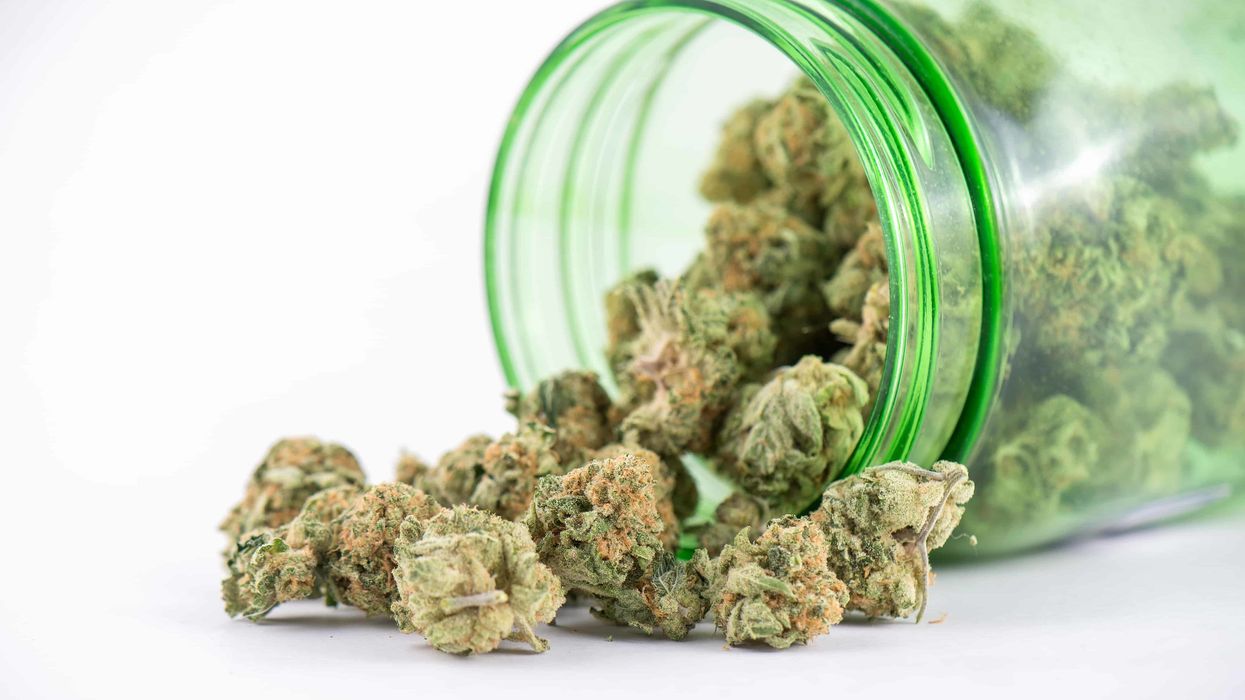Cannabis is one of the fastest growing industries, yet a lot of operators are struggling due to high taxes and over-regulation. One of their greatest antagonists? The IRS and Section 280E.
The Internal Revenue Code’s Section 280E forces legal cannabis operators to pay their taxes under a federal code reserved for illegal drug trafficking.
This remains one of the industry’s biggest hurdles as it struggles to make its way from stigma to mainstream, and continues to hold back operators from profiting, expanding, and succeeding.
Here’s how it started.
Section 280E’s Reagan-Era Origins
The U.S. Internal Revenue Service is responsible for writing rules and regulations for just about every profession and/or activity under the sun – whether it’s legal or not. And since cannabis is still illegal under federal law, things can get really dicey for the industry.
Section 280E pertains to trafficking illegal drugs, and while cannabis is well on its way to legalization, the industry remains tied to its illicit and stigmatized past by having to pay taxes under this category.
This section of the Internal Revenue Code originated in 1981, during a court case where a convicted cocaine trafficker asserted his right under federal tax law to deduct business expenses from his operations.
During that landmark case, known as Edmondson v. Commissioner, the Tax Court allowed the trafficker to deduct his expenses: including rent, packaging, telephones, vehicle expenses and the purchase of a small scale.
280E was created the following year by Congress, to prevent other illegal drug traffickers from attempting to follow suit. The code states that no deductions should be allowed “in carrying on any trade or business if such trade or business consists of trafficking in controlled substances.”
This sounds all well and good for illicit drugs that are harmful to society, but at the end of the day, cannabis is the only substance on the list of Controlled Substances that is almost entirely legal throughout the country – which also means it’s the substance that is targeted most often for 280E compliance.
Section 280E Was Created for Illegal Drug Traffickers – So Why is it Mainly Used to Target Cannabis?
The government preying on cannabis’s federal illegality isn’t exactly news. Countless people – mainly in Black and Brown communities – have been unfairly targeted for cannabis use throughout the past several decades, and even as the plant continues to legalize, many of the hurdles it’s forced to jump over remain alive and well.
Section 280E is a major hurdle for legal cannabis businesses today, who want nothing more than to operate like any other legal business throughout the country. However, the exorbitant tax rates they’re forced to keep paying will continue to hold the industry back exponentially.
Under Section 280E, cannabis businesses pay taxes on gross income. As a result, many of these businesses pay tax rates that are 70 percent – or higher – while non-cannabis businesses typically pay around 30 percent.
This isn’t as big of a hit for major multistate operators, but for mom-and-pop shops and other smaller businesses – which many dispensaries throughout the country are – these rates absolutely slash any chance they have at profit.
Instead, many cannabusinesses are forced to constantly play catchup to simply break even.
Michael Reardon, CEO of Happy Valley in Massachusetts, counts corporate taxes among his business's largest expenses. "And because of the lack of capital markets in our industry, we just don't have the opportunity to organically grow through cash because it's going to the government," he said.
"It's not that 280E was unexpected. It's just until you actually experience it and see that impact, you realize if I had been treated like a normal industry, I could have done X, Y and Z to promote growth within my organization for the following year."
The issues accompanying Section 280E got even bigger in January 2015, when the Internal Revenue Service issued an internal memorandum that opined on how legal cannabis businesses should compute their federal income taxes.
This essentially imposed an even stricter version of Section 280E on cannabis operators, eliminating the very few deductions they were previously allowed to take.
Now, cannabis businesses are scrutinized for the following types of expenses:
- Employee salaries
- Utility costs (electricity, Internet, telephone service, etc.)
- Health insurance
- Marketing and advertising costs
- Repairs and general location maintenance
- Facility rental fees
- Contractor payments
Few businesses can successfully operate without the above, and while most industries are able to easily deduct these necessary expenses, cannabis remains at a total loss.
The only thing state-legal cannabis businesses are allowed to deduct from their annual expenses is the cost of goods sold and some non-cannabis business activities, like inventory and administrative costs.
However, this is a very small portion of a business and how it operates, and until cannabis is treated fairly in this regard, businesses will continue to scramble and suffer.
What’s the Best Solution to Section 280E For The Cannabis Industry?
Although Section 280E has plagued the industry for decades now, activists and experts are beginning to stand up, calling the rest of the industry to fight against the IRS’s unfair approach to the plant.
“We have to fight back by taking more and more of these cases to trial. If we are not going to get the concession from the IRS, we’re going to get them from the tax court,” tax attorney Henry Wykowski of Wykowski & Associates said in an interview.
“Every trial we’ve done for cannabis companies, the judges ask the U.S. attorneys prosecuting the cases, ‘Don’t you guys read the paper? Why is the government spending our money arguing these cases?’”
The answer remains unclear, as this continued holding-back of the industry hurts everyone involved: operators, consumers, and taxpayers alike. If these lasting restrictions are finally lifted, this $30+ billion industry can expand even further, resulting in more tax revenue for the entire country.
However, the archaic Section 280E remains intact, and operators’ only option is to keep fighting it – which isn’t completely for naught.
One of Wykowski’s biggest wins in this arena was the tax court case of Californians Helping to Alleviate Medical Problems, Inc. (CHAMP) v. The Commissioner in 2007. Wykowski was able to successfully argue in favor of the court allowing medical cannabis companies to deduct any expense that could be separated from the trafficking of cannabis (like caregiving services, education, or patient support).
“We are getting a lot of support, but it’s only coming if we fight for it,” Wykowski said in the same interview. “It’s better to go down fighting for something you believe in instead of giving in.”
This was a small win, but a win nonetheless – and an indication that things can change if someone out there is fighting hard enough.
Need a little more Bluntness in your life? Subscribe for our newsletter to stay in the loop.
















